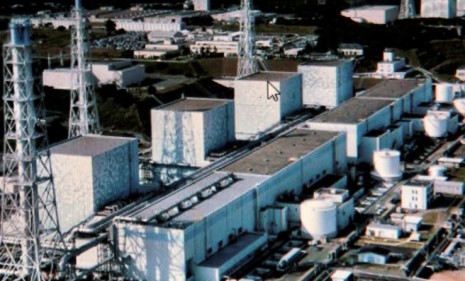Are the Fukushima 50 doomed to death?
Japan's nuclear heroes are credited with protecting their nation from a catastrophic meltdown. But at what cost to themselves? An instant guide

A free daily email with the biggest news stories of the day – and the best features from TheWeek.com
You are now subscribed
Your newsletter sign-up was successful
Employees at Japan's stricken Fukushima nuclear power plant have been hailed as heroes for subjecting themselves to dangerous levels of radiation while they desperately labor to prevent a massive meltdown. Now, details of the conditions and fears of the so-called Fukushima 50 — the small group that stayed behind when most of the plant's workers were evacuated after the March 11 tsunami — have begun to emerge. Here, a glimpse of the life-threatening ordeal of the Fukushima 50:
Are their lives in danger?
Yes. Distraught relatives say that many of the plant's workers assume they are undertaking a suicide mission. They have been exposed to extremely high doses of radiation, and several have been treated for radiation burns. Through tears, the mother of a 32-year-old worker told Fox News by phone that her son and his colleagues know they are probably sacrificing their lives, and could have only weeks or months to live. "They have accepted they will all probably die from radiation sickness in the short term or cancer in the long-term," she said. "They know it is impossible for them not to have been exposed to lethal doses of radiation."
The Week
Escape your echo chamber. Get the facts behind the news, plus analysis from multiple perspectives.

Sign up for The Week's Free Newsletters
From our morning news briefing to a weekly Good News Newsletter, get the best of The Week delivered directly to your inbox.
From our morning news briefing to a weekly Good News Newsletter, get the best of The Week delivered directly to your inbox.
Can they protect themselves?
The Fukushima 50 wear protective suits, and those working in highly radioactive areas, such as the fuel rod containment chambers, can only stay there for 15 minutes at a time. They sleep in conference rooms, hallways, and stairwells, where each worker gets one blanket, and a lead mat to shield them from radiation. "My son has been sleeping on a desk because he is afraid to lie on the floor," said the woman who spoke to Fox News. "But they say high radioactivity is everywhere and I think this will not save him."
How bad are conditions at Fukushima?
Horrendous. The Fukushima 50 aren't on their own anymore — there are now about 400 Tokyo Electric Power Co. employees inside the plant. They work in rotating 12-hour shifts. The high levels of contamination make it hard to get supplies to them, so food and water are scarce. They get two meals a day: Typically, vegetable juice and 30 crackers each for breakfast, and instant rice for dinner. "I just wanted people to understand that there are many people fighting under harsh circumstances in the nuclear plants," one worker wrote in an email. "That is all I want. Crying is useless. If we're in hell now all we can do is to crawl up towards heaven."
A free daily email with the biggest news stories of the day – and the best features from TheWeek.com
Is the pressure getting to them?
Yes. In a note thanking fellow TEPCO employees for their hard work, one Fukushima supervisor broke down. "My parents were washed away by the tsunami and I still don't know where they are," he wrote. "I'm engaged in extremely tough work under this kind of mental condition. ... I can't take this any more!" Another worker, named Emiko Ueno wrote in an email quoted in The New York Times: "My town is gone,. My parents are still missing. I still cannot get in the area because of the evacuation order. I still have to work in such a mental state. This is my limit."
-
 What are the best investments for beginners?
What are the best investments for beginners?The Explainer Stocks and ETFs and bonds, oh my
-
 What to know before filing your own taxes for the first time
What to know before filing your own taxes for the first timethe explainer Tackle this financial milestone with confidence
-
 The biggest box office flops of the 21st century
The biggest box office flops of the 21st centuryin depth Unnecessary remakes and turgid, expensive CGI-fests highlight this list of these most notorious box-office losers